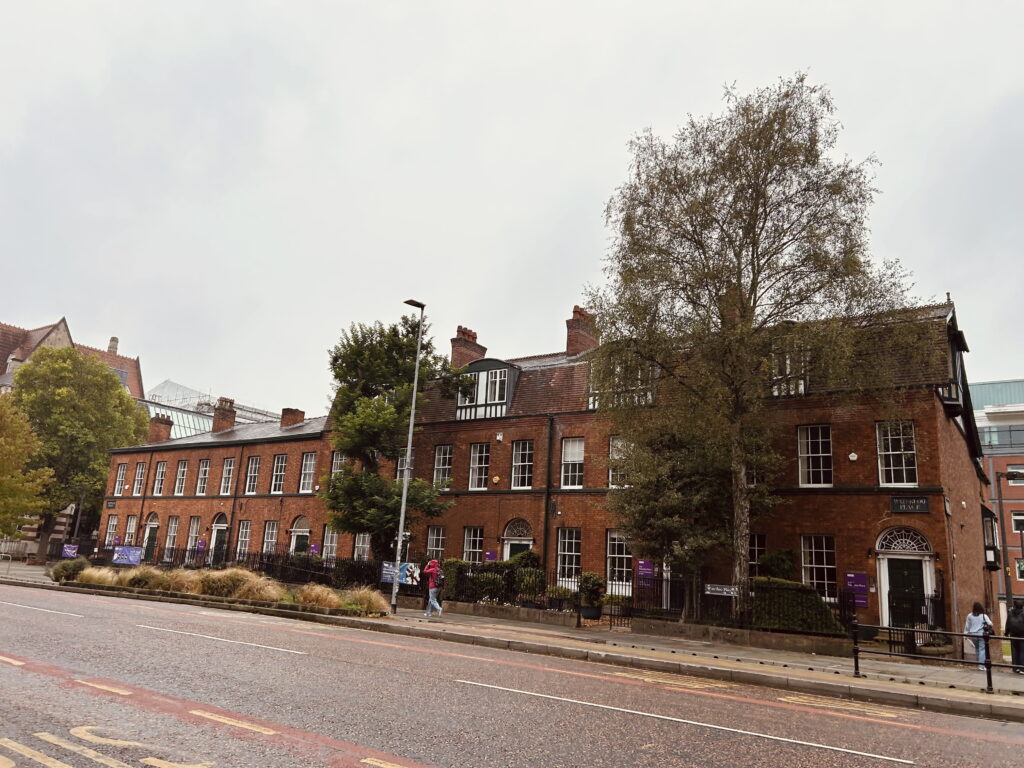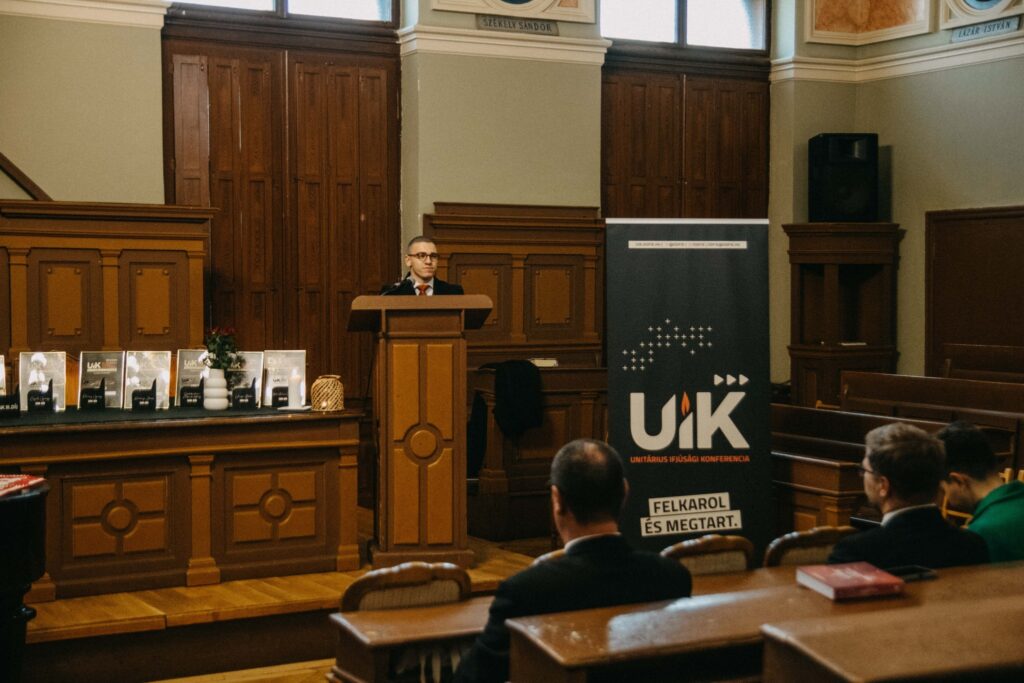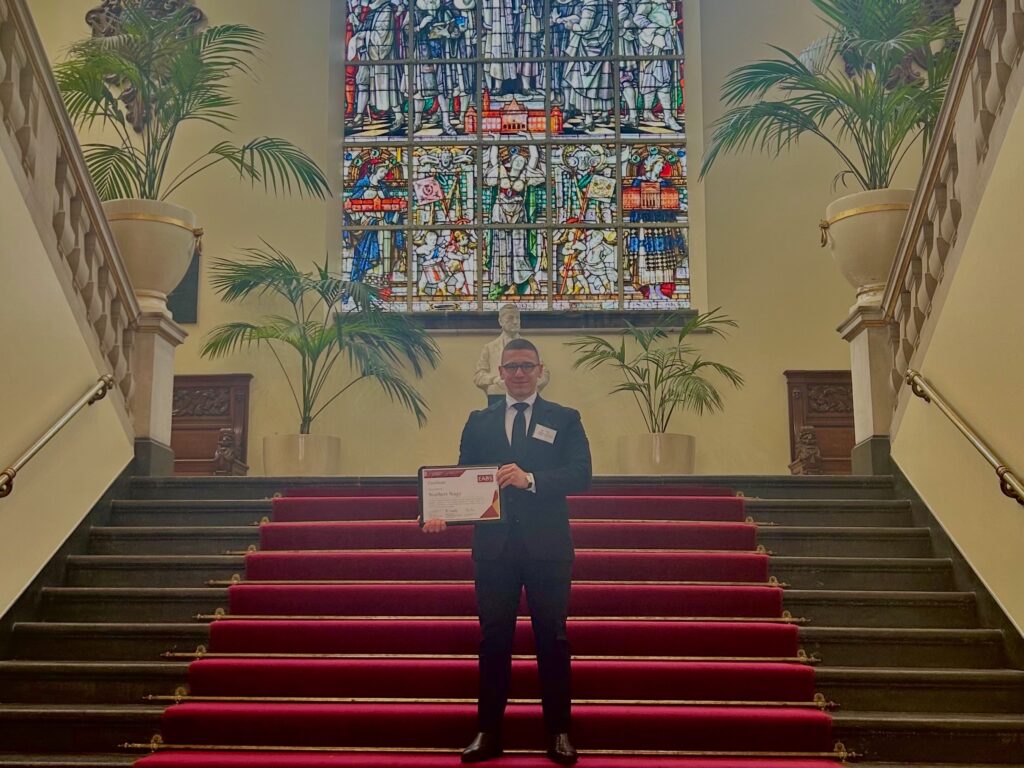How Historical Jesus Research takes me to the US

How Historical Jesus Research Takes Me to the US September 28, 2025 Norbert Nagy A Journey I Could Hardly Imagine Things are happening so quickly in my career that I can barely keep up myself. After getting into Oxford and presenting my research in the UK last month, another incredible opportunity has come my way: my first-ever trip to the United States. What a journey, and all within such a short time. Applying to the SBL Annual Meeting The application for this conference was one of the most interesting experiences I have had so far. It is the Annual Meeting of the Society of Biblical Literature (SBL), a massive gathering with thousands of participants and highly specialized sessions. When I saw that there would be a session dedicated to The Next Quest for the Historical Jesus, I could hardly believe my eyes. Finally, a place where I could present the ideas I have been developing recently. The theme, the scale, the country I had never visited before, everything about it felt like a calling. A Difficult Dream to Reach When I shared this dream with one of my friends and mentors, who knows the field and the conference very well, he kindly warned me not to be disappointed if my application did not succeed. The SBL is one of the highest-ranked conferences in the world, with fierce competition. I understood perfectly, and honestly, I thought the same. It felt almost impossible. Yet I tried. And I got in. To my astonishment, the session had space for only four presentations on the Historical Jesus, just four from around the world. And there was my name among three established scholars, professors at renowned universities, all with published books. What am I doing among them? Honestly, I am not sure. What I do know is that I cannot wait to be there, to explore Boston, and to take part in this incredible event. The Challenge of Getting There When the letter of acceptance arrived, joy quickly turned into stress. Travelling from Eastern Europe to the United States, paying for registration, flights, accommodation, and daily costs, even for a few days, felt financially impossible. I was overjoyed to be accepted but could not imagine how I would cover everything. Then came the generosity of the Hibbert Trust. They believed in my project on the relationship between slavery and the Historical Jesus and generously funded my trip. I cannot express how thankful I am. Their support made this dream achievable. So many good things have happened recently that I am filled with gratitude, to the Hibbert Trust, and to everyone who has helped shape my path, my interests, and my academic journey. Looking Ahead to Boston Soon I will travel to Boston to present my paper before some of the most respected scholars in the field, contributing my own perspective to the ongoing movement of The Next Quest for the Historical Jesus. And who knows? Maybe there will be time for a short visit to New York or Washington before I return home.
British New Testament Society Conference 2025

British New Testament Society Conference 2025 September 28, 2025 Norbert Nagy A Long-Awaited Opportunity I had heard about the British New Testament Society Conference many times. People kept saying it was different from any other biblical conference. I was not sure what they meant. Maybe it was because the field is narrower, or because most of the scholars already know each other, or simply because it is such a close-knit community in the UK. Whatever the reason, I knew one thing for sure: I really wanted to experience it myself. So I submitted a proposal and waited. And waited. When the answer finally came, it was not what I had hoped for. My topic did not fit the year’s session, so there was no place for me on the program. I was disappointed but still thought about attending anyway, even just as a listener. A few weeks before the conference, an unexpected email arrived. Another session had seen my abstract and now had an open spot. They invited me to take it. Of course, I said yes, probably within minutes. Flights were booked, accommodation arranged, and soon I was on my way. The Conference Experience This was my first biblical conference in the United Kingdom, taking place just a few weeks before I began my doctoral studies at the University of Oxford. It was the perfect opportunity to get to know the academic community, meet researchers, and see the atmosphere I was soon to join. My paper was scheduled in a session that included two other presentations on the Historical Jesus, which was exciting in itself. I had heard that years ago this topic even had its own dedicated session. It felt great to see that others were working on themes so close to mine. The atmosphere was remarkably friendly, open, and supportive. I have slowly grown used to being the youngest researcher in the room, signing up boldly for every opportunity I can find. There is a special kind of excitement in that. People are curious, generous with advice, and happy to help. Sharing My Work I presented my paper on the role of slavery studies for the Next Quest for the Historical Jesus and was thrilled to share these ideas with such a receptive audience. The feedback was thoughtful, and many of the conversations that followed have already turned into new connections, and maybe the beginning of lasting friendships. I left the BNTS conference inspired and grateful. I hope that next year my abstract will be accepted on the first try, because I am already looking forward to going back.
Oxford for Ordinary – Living the Magic

Oxford for Ordinary – Living the magic September 28, 2025 Norbert Nagy I have always been deeply interested in the study of the Historical Jesus. Still, never in my wildest dreams did I imagine that this journey would lead me to the world’s most renowned university. Yet the topic proved meaningful enough for me to receive an offer of admission from Oxford. The financial challenge, too, seemed impossible to overcome. Then the Kereki Fund of the General Assembly of the Unitarian and Free Christian Churches awarded me a scholarship that covers both tuition fees and living costs, allowing this dream to come true. After all those hours, days, and months of preparing my research proposal, gathering documents, and meeting every condition over the course of about a year and a half, here I am. Here I am. The term has started, and I can hardly take in everything that Oxford has to offer. I am amazed by the centuries-old stones, the quiet courtyards, the bells, the trees, the river, and the parks. It is all so magical. I am deeply grateful. To be honest, this once felt impossible for someone like me. Stepping into this renowned community with the background I come from feels both extraordinary and humbling. Yet, as I arrived, everything also felt surprisingly familiar. People are kind and welcoming. They smile at each other. Many of the stereotypes about Oxford being distant or unapproachable simply do not hold true. That is exactly why I want to write this blog. I want to show that it is possible to come here, even without previous studies in this university or even in this country. I want to write for those who dream but doubt, for those who wonder if they belong. Oxford welcomes all. Oxford is for ordinary people, for students like me, like you, like anyone who is willing to try. May this blog serve as both inspiration and insight into Oxford’s life, education, and community. And may it encourage you, whoever you are, to take that step and apply. Because sometimes, what seems impossible may be waiting for you just beyond the next door.
Transforming the Unitarian Youth Conference

Transforming the Unitarian Youth Conference September 28, 2025 Norbert Nagy Rekindling the Spirit of Learning and Creativity The Unitarian Church had always valued knowledge, education, and culture. As János Erdő once wrote, “From its beginnings, Unitarianism had embraced the cause of education and culture and supported it with great generosity.” This Unitarian vision of education gave life to schools, reading circles, journals, and conferences across generations. These were more than institutions; they were expressions of a living, self-organizing community. Yet in recent decades, much of that creative energy had faded, especially among our youth. Then, something new began stirring. From Tradition to Renewal Two milestones in our history stood out: the Unitarian Youth Conference, first held in 1928, and the Folk High School founded by Rev. Ferenc Balázs in the early 1930s. Both sought to unite faith, culture, and education, serving as models of civic and spiritual engagement. Ninety years later, these two paths met again. The Youth Conference was transformed into a Folk High School for youth, a living movement dedicated to cultural and intellectual growth. A Movement and a Workshop Our purpose was simple: to bring culture and learning back to the heart of youth life, and to channel those efforts into one central event, the Unitarian Youth Conference. This historic gathering, renewed in both spirit and structure, then functioned as a cultural and academic workshop. It helped young people broaden their worldview, think critically, and strengthen civic awareness and personal initiative. To support this mission, a mentor network of professionals and scholars offered guidance through lectures and small-group sessions, providing accessible paths into science, art, and public life. How It Worked Before the main conference, participants joined online sessions introducing different fields and basic research methods. Each participant chose a topic, prepared a short abstract, and presented it at the conference. Afterwards, their work continued under individual mentorship, ensuring continuity and growth beyond a single event. Over time, this evolving network fostered reading groups, research teams, public discussions, and creative gatherings, extending the conference’s impact throughout the year. A re-established youth journal, The Sheaf, originally published between 1930 and 1936, published both mentor essays and student research, giving young authors a platform and making their learning visible to the wider community. Why It Mattered This renewal was more than a preservation of tradition; it was a reaffirmation of the Unitarian harmony between faith and reason. Education, culture, and thoughtful inquiry had always stood at the center of our moral mission. Then, we renewed that calling to form minds that were open, reflective, and ready to contribute to both church and society. As one of the organizers, I was deeply grateful for the team that made this vision possible. Their dedication reminded me that renewal began with a simple conviction: learning still had the power to unite and transform. Looking Back We hoped that year would mark the start of a new cycle of creativity and participation among Unitarian youth. And indeed, when we looked back later, we smiled, realizing that what once seemed like decline had actually been the beginning of something bright and enduring.
Master of Theology in the Netherlands

Master of Theology in the Netherlands
